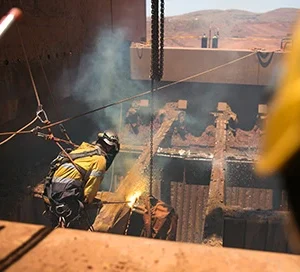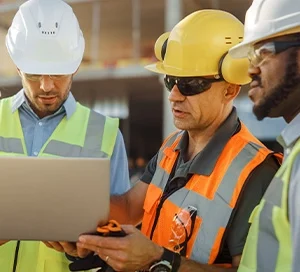And for good reason. RPL is gaining in popularity as an alternative to completing formal education. The sector has been steadily growing after RPL was embedded in the Australian Qualifications Framework in 1995, and is a great way to receive the qualifications you need to progress your career without committing to formal education.
What is RPL?
Recognition of prior learning is a process of assessment for credit toward a qualification from a registered training organisation (RTO). It involves the assessment of your skills and experience to establish your prior learning (formal, informal and non-formal learning) and awards credit to the relevant learning outcomes of a course or qualification.
Why use RPL?
RPL gives you the opportunity to gain formal qualifications through the certification of your existing skills and experience without undertaking formal education.
- RPL is faster than formal study
- In most cases, it’s significantly cheaper than completing the study
- It doesn’t require you to do extra work outside of the application process
While RPL is gaining strength in Australia, there are still plenty of misconceptions about the industry. Here are the top 6 myths that hold candidates back from opening up their future with RPL:
1. It’s too good to be true
In a society that has historically encouraged the idea that traditional formal education is the path to career and personal success, it’s easy to see why many people think RPL is too good to be true.
After all, how could you end up with a Diploma or Certificate without ever setting foot in a classroom, opening a book, or facing a skills exam?
The easy answer is because you’ve already done all of the training on the job.
According to the Australian Qualifications Framework, “RPL involves issuing organisations undertaking an assessment of each individual who applies to determine the extent to which that individual’s previous learning is equivalent to the learning outcomes of the components of the destination qualification.”
In other words, you will only be given certification if your skills and experience learnt on the job are equal to those offered through formal education.
2. It will take years to complete
While the process of certification will inevitably depend on your own circumstances, certification can take as little as one month to process once submitted.
The process requires candidates to gather evidence of their skill and experience to be used in the assessment. In most cases, it’s the evidence gathering that determines how long the certification process takes.
The evidence required can vary widely depending on your job but can include things such as:
- photos or video footage of you completing a job
- references from previous employers
- details of internal training processes
- samples of completed projects
RPL specialists can help you determine what evidence is required and work with you to submit your application.
3. I need to do hours of research and fill out complex forms I don’t understand
There’s no denying that pursing education and certification can be a daunting and time-consuming task. And with hundreds of registered training organisations offering education it can be hard to know where to start and what’s right for you.
RPL specialist like Skills Certified Australia exist specifically to streamline the process and find both the right RTO and qualification for your industry and experience.
Facilitators have in-depth knowledge of the industry and work personally with you throughout the entire process so you don’t need to do time-consuming research yourself.
4. There’s a minimum education level to be eligible
RPL is specifically designed to help candidates receive certification for their demonstrated skills and experience.
The beauty of RPL is its ability to broaden access and inclusion to formal education and the workforce to those who may not have completed or pursued secondary or tertiary education.
5. The certification carries less weight than if I completed the education
It’s a popular misconception that qualifications received through recognition of prior learning aren’t as legitimate as if you had completed the formalised curriculum or physically attended study.
The qualification you receive through RPL is exactly the same as the qualification you would receive if you completed formal study directly with a recognised training organisation. The Australian Qualification Framework requires that:
- Your skills are assessed by an academic or teaching staff with expertise of the skills area, content or subject and knowledge of the RPL process.
- The assessment is the same standard as other formal assessments for the qualification.
- Recognises your learning regardless of when, where and how it was acquired providing it’s relevant to the learning outcome being assessed.
- Ensures that the evidence provided is authentic, current and valid and that the process is fair, flexible and valid.
6. I don’t have a choice in what RTO the certificate is issued by
The short answer is: you always have a choice. It’s important you are confident in the RTO your qualification will be issued by.
Skills Certified Australia partner with reputable RTO’s, and match you with the RTO that is most appropriate for your industry, skill set and future goals.
To learn more about RPL and if it’s right for you talk to our team on 13 17 75 or leave your details on our enquiry form.















